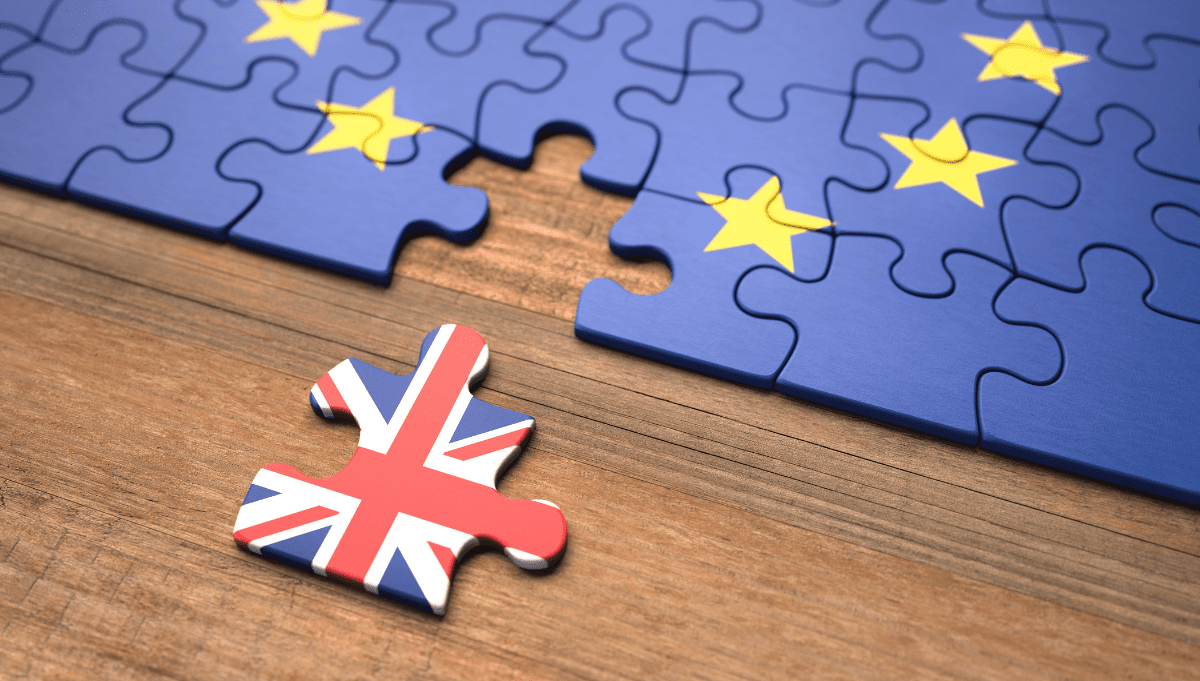
We’re taking a look at the current Brexit situation - debating the positive and negative outcomes on UK retailers and what actions you can take for your online business.
>Share this post<
by kooomo
October 22, 2021
Nowadays, trading conditions are very demanding for British retailers as they navigate through the aftermath of Brexit. While most of the countries are still struggling with the repercussions of the COVID-19 pandemic, the UK strikes a trade agreement with the EU. Is the UK losing the forefront of eCommerce and multichannel retail due to Brexit?
Today we’re taking a look at the current Brexit situation - debating the positive and negative outcomes on UK retailers and what actions you can take for your online business.
Today we’re taking a look at the current Brexit situation - debating the positive and negative outcomes on UK retailers and what actions you can take for your online business.
Radical changes in UK business
The new Free Trade Agreement made official on 1st January 2021, brought confusion upon business operations leading to the many UK- based retailers suspending their sales to EU countries and Northern Ireland. It imposed extra costs and caused delays in shipping times and also interrupted the operations of UK businesses.Nevertheless, the retail sector was severely affected because of the economic uncertainties on the outcome of Brexit and the high costs of rent and labour.
The online market creates opportunities for the small UK businesses
Despite these difficult times, the Brexit agreement is more likely to encourage UK customers to purchase online from domestic retailers rather than from the ones which are located in EU markets. Undoubtedly, this new direction is a step forward regarding what the COVID-19 pandemic has already established.As stated by Euromonitor International´s Lifestyles Survey, purchasing products from abroad that are not available locally has decreased among British consumers in the last five years. Nevertheless, the ratio of foreign eCommerce out of total eCommerce sales value in the UK started to decrease in 2020. There is expected to be an increase in demand for purchasing new product categories online, such as groceries, which will mean an increase in domestic eCommerce in the future.New European distribution for eCommerce
British brands and most of the products offered by the UK are very popular in the European Union. Therefore, Brexit and the Free Trade Agreement will have a big impact on EU retailers in terms of purchasing online goods from UK retailers. At this point, it is likely that the role of the UK, as one of the leading source markets, will be surpassed by competitors such as Germany or the Netherlands. Amazon recently announced that it will open a new distribution centre in Amsterdam, which will open more brands and retailers up to Europe thanks to its multilingual culture and workforce. Nevertheless, this is positive news because opening a new centre and entry point to the European Union is a chance for many retailers to simplify the cross-border process - helping European countries overcome restrictions after Brexit. As a result, it is expected that major retailers will relocate their processes to the EU or to open new distribution centres.Tough challenges for the food and drink trade
The official departure from the EU on 31 December brought about new directives that complicated the task of moving products across the channel. Without a doubt, the food and beverage industry was most affected as almost 80% of food imports were due to come from the EU. In most cases, this added extra costs and delays to the business of the food and drink trade. As a consequence of this disruption to normal trading, exports to Ireland from the UK declined by 65% in January 2021 - this being the largest decline since 1997.What happened after Brexit?
First of all, shipping times can take longer and the extra VAT costs may prevent customers from doing online shopping cross-border. Secondly, ¨nterchange ¨fees on cross-border payments between UK and EU will make transactions more difficult. Thirdly, starting October 2021, card operators such as Mastercard and Visa will maximise the availability of cross-border payments, which will not only apply to businesses but also it will affect the customers.How UK retailers are affected
Below are the possible disadvantages for UK retailers:- The import taxes should be implemented for goods coming from the EU. On average, 5.3% of import taxes are paid on goods coming from the rest of the world and 12.2% on agriculture. From the WTO research, 60.7% of produced goods come from the UK with no taxes.
- While the UK VAT rate is quoted as the lowest European one, we estimate that the UK will keep the VAT as valid tax on sales.
- UK Retailers which promote their products from the EU will pay more to import their goods, which will result in lower margins if their goods are being sold in their British online store.
Nevertheless, there are positive aspects, such as:
- For UK retailers who sell outside the country, the devaluation of the British pound will make products and services purchased from UK companies cheaper.
- Made in Britain could be a great opportunity as UK retailers who sell locally would benefit from a weaker sterling.
- Manufacturing in the UK has been gradually diminishing but purchasing British goods could be a good way out.
- British consumers spending at foreign eCommerce websites will decline at first. This will make things easier for local UK shops as people will be more motivated to purchase locally.
How to take action as a retailer
First of all, retailers now have the chance to expand their international reach by entering international sales channels, such as Amazon Germany, for example. Moreover, now is the right time to have access to data feeds for international channels.A product feed is simplifying the way that the information loads on thousands of products on a website. As a publisher, you can get a product data feed from a merchant to display on a website. As a merchant, manufacturer or supplier, you can attract more publishers to help you reach more customers. Publishers include price comparison and shopping websites such as Google Shopping, Amazon or Pricegrabber.
- As a retailer, you will need to optimize all your online campaigns. Long story short, improve product titles, create custom labels, remove under-performing products and pay attention to your data coming from Google Analytics.
- Instead of hiring more people in your company, automate processes and save some valuable money.
- Source locally because Made in Britain is definitely on the rise!
- Always watch your competition´s cost of charges and keep being competitive towards them. Take into account that the VAT cost should be transparent, so the customers need to know what they are paying exactly for.
- Always optimize and improve your ROI.
Conclusion:
Taking all our recommendations into account, you can massively reduce any negative impact that Brexit might have on your retail business. Keep an eye on the Kooomo blog for more exciting news from the eCommerce world.More to explore
Here’s an overview of the latest improvements that are now available in the Kooomo platform.
In the next few years, we are foreseeing an impressive increase for the global retail industry. While this can be beneficial for the global eCommerce industry, it also means that there will be more competition, as well.

 en
en 

